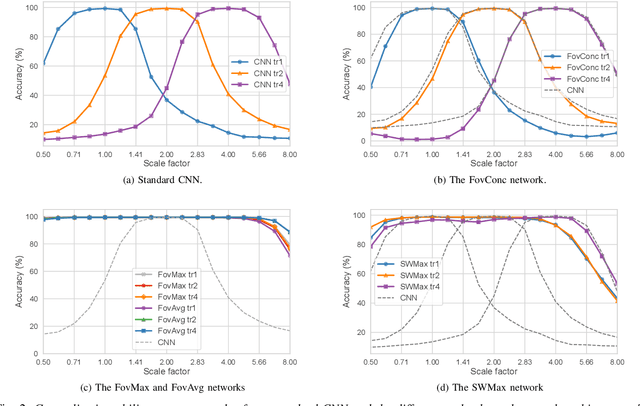Exploring the ability of CNNs to generalise to previously unseen scales over wide scale ranges
Paper and Code
Apr 03, 2020



The ability to handle large scale variations is crucial for many real world visual tasks. A straightforward approach for handling scale in a deep network is to process an image at several scales simultaneously in a set of scale channels. Scale invariance can then, in principle, be achieved by using weight sharing between the scale channels together with max or average pooling over the outputs from the scale channels. The ability of such scale channel networks to generalise to scales not present in the training set over significant scale ranges has, however, not previously been explored. We, therefore, present a theoretical analysis of invariance and covariance properties of scale channel networks and perform an experimental evaluation of the ability of different types of scale channel networks to generalise to previously unseen scales. We identify limitations of previous approaches and propose a new type of foveated scale channel architecture, where the scale channels process increasingly larger parts of the image with decreasing resolution. Our proposed FovMax and FovAvg networks perform almost identically over a scale range of 8 also when training on single scale training data and give improvements in the small sample regime.
 Add to Chrome
Add to Chrome Add to Firefox
Add to Firefox Add to Edge
Add to Edge